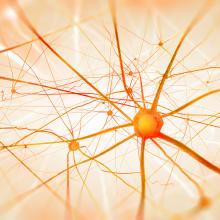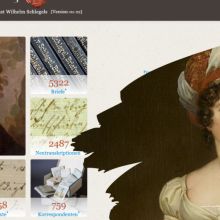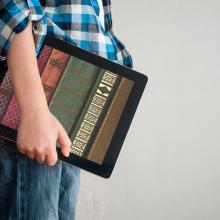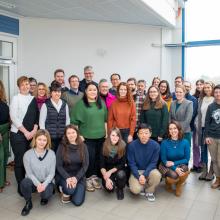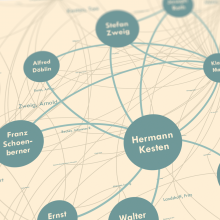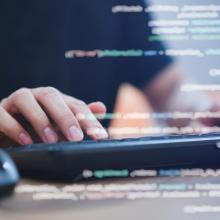„Wossidlo-Teuchert“ online
Publication of the Mecklenburg dictionary in the Trier dictionary network and corpus-based bidirectional linking with the "WossiDiA" digital research environment
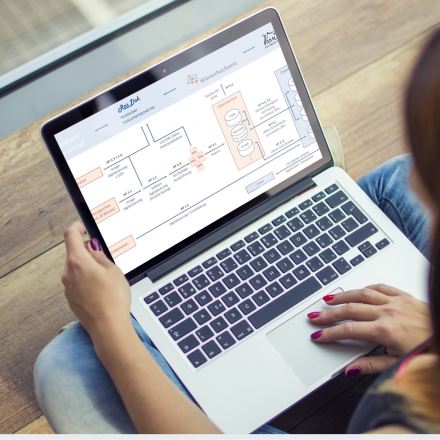
Project Management: Prof. Dr. Andreas Bieberstedt (Universität Rostock – Institut für Germanistik) · Universität Rostock – Institut für Germanistik · Dr. Christoph Schmitt (Universität Rostock – Wossidlo-Forschungsstelle für Europäische Ethnologie/Volkskunde (WFS)) · Dr. Petra Himstedt-Vaid (Universität Rostock – Wossidlo-Forschungsstelle für Europäische Ethnologie/Volkskunde (WFS)) · Universität Rostock – Wossidlo-Forschungsstelle für Europäische Ethnologie/Volkskunde (WFS) · Dr.-Ing. Holger Meyer (Universität Rostock – Lehrstuhl für Datenbank- und Informationssysteme (DBIS)) · Universität Rostock – Lehrstuhl für Datenbank- und Informationssysteme (DBIS) · Dr Thomas Burch (Universität Trier - Trier Center for Digital Humanities (TCDH)) · Universität Trier - Trier Center for Digital Humanities (TCDH)
Project Participants: Karsten Labahn · Universitätsbibliothek Rostock
Sponsors: Deutsche Forschungsgemeinschaft (DFG)
Running time: -
Contact person (TCDH): Dr Thomas Burch
Research Area: Software Systems and Research Infrastructure, Digital Edition and Lexicography
Keywords: Retro Digitization, Graphdatenbanken, Linked Open Data, 19th century
The Mecklenburg Dictionary (MeckWb) represents the most important access to the vocabulary of the Mecklenburg dialect and is one of the large-scale scientific dialect dictionaries. With the help of a new approach of digital lexicography, the linking of a dictionary with its folkloric, agricultural and social historical source material of the Wossidlo Archive (WossiDiA) will be digitally implemented. This will make a central dialect dictionary for the Low German language area digitally accessible and, through subsequent integration into the dictionary network, enable comprehensive research for scholars and the general public.
The MeckWb provides comprehensive information on the semantics, usage and grammar of regional lexemes on the basis of about one million vouchers, which are classified diatopically and linguistically historically and partly also illustrated cartographically. For this purpose, the dictionary draws on oral and written sources of different provenance, which reach back to the Middle Low German language stage. Developed in cooperation of the folklorist Richard Wossidlo and the dialectologist Hermann Teuchert, the MeckWb presents regional ethnographic sources (folkloristic, agricultural and social history etc.) beyond the Low German (nd.) vocabulary, which are explained and often graphically illustrated. In this way, it exemplarily combines the characteristics of a large-scale landscape dictionary with the character of an ethnographic-historiographic encyclopedia. More detailed as well as new, polydirectional search routines, networking scenarios and the application of data mining techniques require its full-text digitization with subsequent XML markup, which therefore represents a central goal of the proposed project.
A development of digital lexicography leading to new research questions is the linking of dictionaries with their source material. It should allow the user a consistent access from the lexicographic record to its source, i.e. to the literary work or to the linguistic record and questionnaire. WossiDiA, the digital Wossidlo archive, offers a special starting point for this. This digital research environment, which to a large extent embodies the source basis of the MeckWb, has so far been designed more for ethnographic user needs. Therefore, beyond the presentation of the MeckWb in the Trier dictionary network, its networking with WossiDiA is to be realized, which will thus be opened to linguistic access. The infrastructure available in WossiDiA can be used for these networking directions.
An important partner in the project is also the Rostock University Library (UBR), which will digitize further Mecklenburg idiotica and dictionaries, printed works referenced in the MeckWb, Teuchert's questionnaires and dialect-related scrapbooks with its committed digitization strategy (RosDok, Digitale Bibliothek MV).
It is planned to integrate the MeckWb into the infrastructure of the Trier dictionary network and thus to link it with the dictionaries created there. In this way, among other things, nd. (and hd.) headwords of the MeckWb can also be found and compared in the context of superordinate searches across several dictionaries and lexicological, dialectological, linguistic-historical, comparative, but also ethnological questions can be pursued. At the same time, the future network would be the first in German-language dialect lexicography to document one of the three major dialectal groups (Low German, Middle German, Upper German) in its entirety.
Related projects: The Dictionary Network
Team TCDH
Dr Thomas Burch
E-mail: burch uni-trier [dot] de
uni-trier [dot] de
Phone: +49 651 201-3364
Svenja Wagner
E-mail: wagnersv uni-trier [dot] de
uni-trier [dot] de
Phone: +49 651 201-3365


